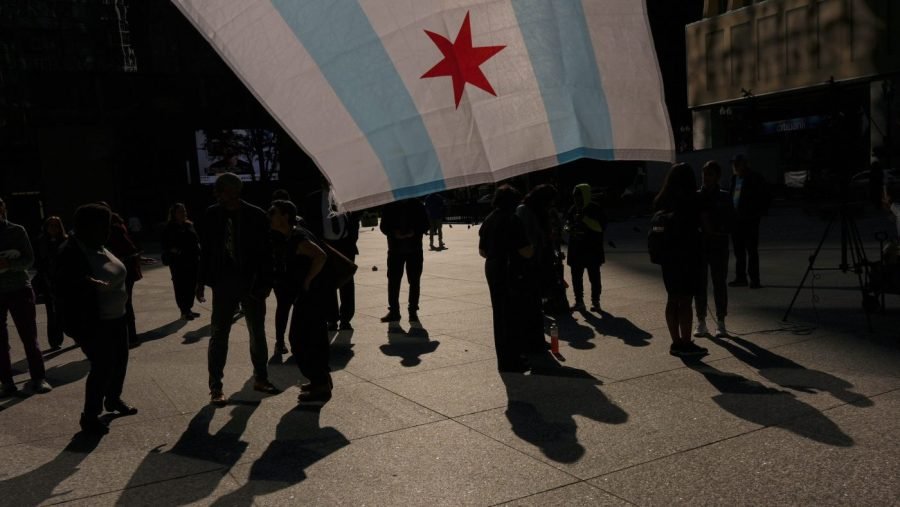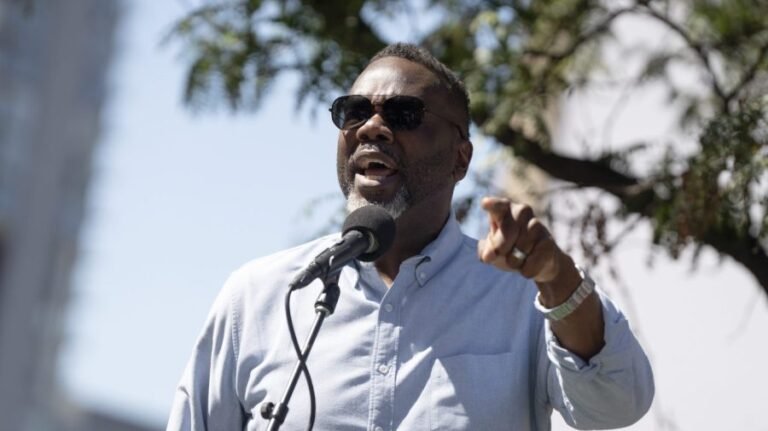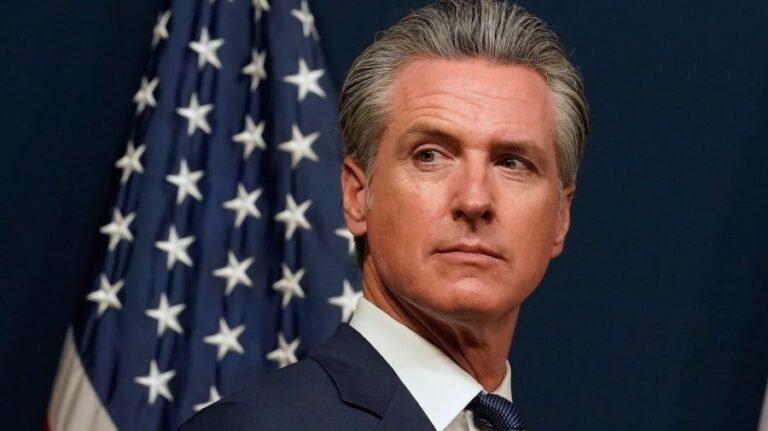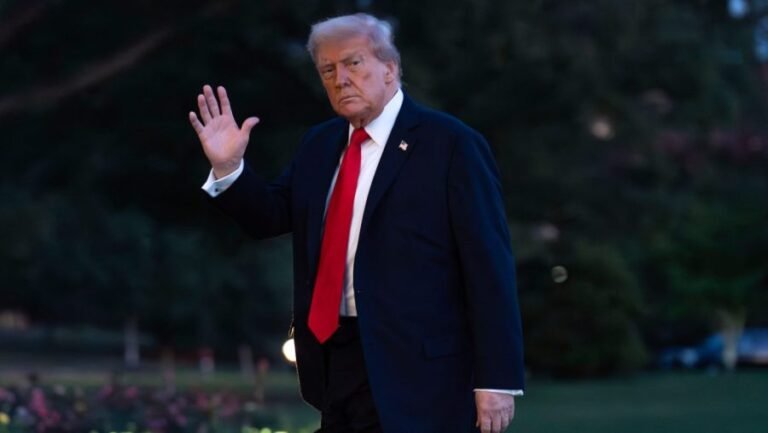
The Trump administration is escalating its immigration operations in Democratic cities in the wake of a Supreme Court ruling giving the government the ability to conduct immigration stops based on an individual’s ethnicity or whether they speak Spanish.
The Department of Homeland Security (DHS) on Monday morning announced “Operation Patriot 2.0” in Massachusetts and announced “Operation Midway Blitz” in Chicago roughly an hour after the Supreme Court decision came down.
The Supreme Court ruled 6-3 to lift a lower court’s ruling that barred profiling as U.S. Immigration and Customs Enforcement (ICE) officers roved Los Angeles.
The timing of the announcements appeared to be coincidental; President Trump has for weeks floated surging resources into Chicago to crack down on crime. But the high court’s ruling provides additional momentum for an administration that has repeatedly pushed the envelope with its deportation efforts.
The planned ICE raids build on action earlier this summer in Los Angeles that sparked a court battle over the agency’s enforcement policies, with a judge blocking officers from using race, language or even someone’s profession as a basis for targeting them.
“Today’s Supreme Court order puts people at grave risk, allowing federal agents in Southern California to target individuals because of their race, how they speak, the jobs they work, or just being at a bus stop or the car wash when ICE agents decide to raid a place,” the American Civil Liberties Union wrote in bashing the order as condoning racial profiling.
“For anyone perceived as Latino by an ICE agent, this means living in a fearful ‘papers please’ regime, with risks of violent ICE arrests and detention.”
The Trump administration has repeatedly tested the bounds of the law with its deportation efforts, facing legal challenges as it sought to deport migrants to third-party countries and over its use of the Alien Enemies Act to remove alleged gang members to a foreign prison.
Trump spent much of August publicly contemplating whether to send the National Guard to Chicago or other Democratic-led cities like Baltimore and Oakland, Calif., as an extension of his crime crackdown in Washington, D.C. Immigration enforcement has been a central component of the federal operations in the District, which has drawn pushback from residents and some local officials.
The president over the weekend further inflamed tensions when he posted a message on Truth Social that read, “‘I love the smell of deportations in the morning… Chicago about to find out why it’s called the Department of WAR.” The post was accompanied by an AI-generated image of Trump in the role of a character from the film “Apocalypse Now.”
Illinois Gov. JB Pritzker (D) and other Democrats viewed Trump’s post as a threat to go to war with an American city. Trump disputed that characterization, but Monday’s announcement of a large-scale ICE operation made the administration’s plans clearer.
DHS said its operation would target “the criminal illegal aliens who flocked to Chicago and Illinois because they knew Governor Pritzker and his sanctuary policies would protect them and allow them to roam free on American streets.”
Sen. Tammy Duckworth (D-Ill.) accused Trump of “essentially declaring war on a city in his own nation.”
“In the coming days Donald Trump will seek to provoke a response to his un-American actions, hoping for images of chaos and violence to validate his lie that Chicago is an apocalyptic city in crisis and justify sending in the military to intimidate Americans,” Duckworth said in a statement.
Meanwhile in Boston, city officials were bracing for a ramp-up of ICE activity, building on an operation first launched in May to target immigrants in the country illegally.
While the Supreme Court’s injunction only concerned ICE policy in the Los Angeles area, the agency is likely to use similar guidelines elsewhere now that the practice has been backed by the high court.
Brought by five men arrested by ICE when raids began in Los Angeles in June, the case resulted in an initial win blocking profiling based on ethnicity, language or due to their presence at places like bus stations and car washes.
The block had an immediate impact. Once ICE agents were stopped from profiling, arrests dipped 66 percent in the span of a week, according to data compiled by the Cato Institute. That figure was even higher for Latinos with no criminal background or removal orders, a demographic who saw arrests drop 88 percent over the same time period.
David Bier, director of immigration studies at Cato, said the data shows how heavily ICE agents have been relying on profiling during their raids.
“Contrary to the government’s initial claims, it is now undeniable that it was engaged in an extremely high level of illegal profiling in Los Angeles,” he wrote in reviewing his findings.
“This is catastrophic for our freedoms and the lawlessness is bound to result in many illegal detentions of Americans and inevitably lead to violence,” he wrote on X on Monday.
DHS celebrated the Supreme Court’s decision.
“This is a win for the safety of Californians and the rule of law,” Assistant Secretary for Public Affairs Tricia McLaughlin said in a statement. “DHS law enforcement will not be slowed down.”
The dispute in Los Angeles had been ripe for a Supreme Court ruling for nearly a month. The court sat on it for weeks as the justices behind the scenes drafted roughly 30 pages worth of opinions.
The majority did not explain its reasoning, as is typical in emergency cases, except for Justice Brett Kavanaugh. The Trump-appointed justice spent much of his concurrence appearing to address critics of the decision.
“The Judiciary does not set immigration policy or decide enforcement priorities,” Kavanaugh wrote.
“It should come as no surprise that some Administrations may be more laissez-faire in enforcing immigration law, and other Administrations more strict,” he continued. “Article III judges may have views on which policy approach is better or fairer. But judges are not appointed to make those policy calls.”
But in a dissent by the court’s liberal wing, Justice Sonia Sotomayor bashed the majority for greenlighting moves to “seize individuals based solely on a set of facts that ‘describe[s] a very large category of presumably innocent’ people.”
“We should not have to live in a country where the Government can seize anyone who looks Latino, speaks Spanish, and appears to work a low wage job. Rather than stand idly by while our constitutional freedoms are lost, I dissent,” she wrote.
“Countless people in the Los Angeles area have been grabbed, thrown to the ground, and handcuffed simply because of their looks, their accents, and the fact they make a living by doing manual labor. Today, the Court needlessly subjects countless more to these exact same indignities.”


